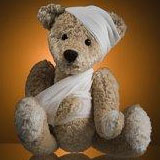Paediatrics First Aid Course
We are an approved Provider for Lancashire County Council Approved Suppliers of Paediatric First Aid Courses.
This course provides staff with knowledge and understanding of first aid to provide appropriate care and manage life threatening conditions, illness and injuries identified in any Early Years setting such as a Nursery, Pre- school, After School Club or Reception Classes as well as Infants and Primary Classes.
The course covers the requirement for the first aid course as laid down by Department for Education in Early Years Foundation Stage – Every Child Matters document.
Syllabus Covered
- Planning for first aid emergencies involving babies and children
- Incident management
- Dealing with emergencies involving babies and children
- Personal safety
- Causality care, management and communication including casualties with visual and audio impairments
- Contents of a first aid box
- Hygiene & Infection control
- First aid risk assessment
- Recording of accidents and incidents
- Resuscitation procedures appropriate to the age of children being cared for
- Dealing with an unconscious casualty
- Recognising and dealing with shock in babies and children
- Recognising an responding appropriately to anaphylactic shock in babies and children
- Recognising and responding appropriately to electric shock in babies and children
- Recognising and responding appropriately to bleeding in babies and children
- Responding appropriately to amputation
- Responding appropriately to burns and scalds in babies and children
- Responding appropriately to choking in babies and children
- Responding appropriately to suspected fractures in babies and children
- Responding appropriately to head, neck and back injuries in babies and children
- Recognising and responding appropriately to cases of poisoning in babies and children
- Responding appropriately to objects in eyes, ears and nose in babies and children
- Responding appropriately to eye injuries in babies and children
- Responding appropriately to nose bleeds
- Responding appropriately to bites and stings
- Responding appropriately to the effects of extreme heat and cold in babies and children
- Responding appropriately to febrile convulsions in babies and children
- Recognising and responding appropriately to the emergency needs of children with chronic medical conditions, including epilepsy, asthma, sickle cell anaemia, croup and diabetes in babies and children
- Dealing with effects of smoke inhalation
- Recognising and responding appropriately to meningitis and other serious sudden illnesses in babies and children
- Welfare and emotions post incident
The course is structured so that staff get the opportunity to practice as many of the skills they have learnt during the course on each other to reinforce the knowledge in a fun environment.
There is no final examination; assessment is on-going throughout. Delegates will receive a certificate which is then valid for 3 years when they successfully complete the course.


